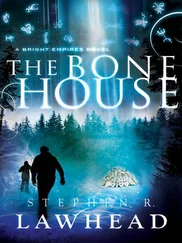Stephen Lawhead - The sword and the flame
Здесь есть возможность читать онлайн «Stephen Lawhead - The sword and the flame» весь текст электронной книги совершенно бесплатно (целиком полную версию без сокращений). В некоторых случаях можно слушать аудио, скачать через торрент в формате fb2 и присутствует краткое содержание. Жанр: Фэнтези, на английском языке. Описание произведения, (предисловие) а так же отзывы посетителей доступны на портале библиотеки ЛибКат.
- Название:The sword and the flame
- Автор:
- Жанр:
- Год:неизвестен
- ISBN:нет данных
- Рейтинг книги:3 / 5. Голосов: 1
-
Избранное:Добавить в избранное
- Отзывы:
-
Ваша оценка:
- 60
- 1
- 2
- 3
- 4
- 5
The sword and the flame: краткое содержание, описание и аннотация
Предлагаем к чтению аннотацию, описание, краткое содержание или предисловие (зависит от того, что написал сам автор книги «The sword and the flame»). Если вы не нашли необходимую информацию о книге — напишите в комментариях, мы постараемся отыскать её.
The sword and the flame — читать онлайн бесплатно полную книгу (весь текст) целиком
Ниже представлен текст книги, разбитый по страницам. Система сохранения места последней прочитанной страницы, позволяет с удобством читать онлайн бесплатно книгу «The sword and the flame», без необходимости каждый раз заново искать на чём Вы остановились. Поставьте закладку, и сможете в любой момент перейти на страницу, на которой закончили чтение.
Интервал:
Закладка:
Now it was much harder. He was no longer the simple, trusting acolyte with neither home nor family, and nothing much to lose. He was the Dragon King, leader of his people, protector of the realm.
Sadly, he had not been much of a protector of late. He had not been able to prevent Durwin’s death, nor his son’s kidnapping, nor any of the host of problems that so beset him. The god had removed his hand from him, had taken the blessing that was given to him and had departed, leaving him alone and helpless.
So be it. The god had moved away, had abandoned him as gods will. He could do nothing about that; he was only a man, after all. The business of the gods was for the gods; mortals could not influence or change affairs once the gods had spoken. And though Quentin had believed wonderful things, incredible things about the God Most High, and had trusted him with his life and the lives of those he loved, the god, like all gods, had ultimately disappointed him.
Still, he had a choice. He could abandon his faith in the Most High and reclaim his life for himself, or he could continue believing, continue serving and trusting, even though there was no good reason to continue, even though all good reason said to cast off the belief that had so long bound him in blind trust to a god who lied when he claimed to care about his children. Where was there ever a god who so much as pretended to care for his followers? None of the old gods, surely. None that he had ever learned about in the temple. If the ways of the gods were beyond the reckoning of men, then at least it made more sense to believe in the only one who held out the hope of something greater than the pitiful rituals played out by the scurrilous priests of the High Temple.
The old gods? Those ancient ethereal impostors? Those vague, capricious forces men called upon, worshiped, and revered with the names of gods? How could he believe in them, knowing them for what they were? As an acolyte, he had served long enough in the temple to learn that a priest’s fleshly lips applied to a hole in the stone brought forth the god’s oracle, and a priest’s avaricious whim became the god’s demand.
At least the God Most High shunned oracles and objects of silver and gold as sacrifices to win his favor. When he spoke it was directly, and with power. Yes, Quentin had felt the power. Even if he did not feel it now and would perhaps never feel it again, he would forever remember the time when he had known beyond all doubt that the god had spoken and empowered him.
This was more than mumbled words whispered through a speaking hole hidden in a stone. There was hope here, and that was something the old gods of earth and air, of crossroads and high places, of flowing water and seasons, could never give. Quentin could still remember what it was like to live without that hope, could still remember the aching despair that would come on him when as a boy he lay on his straw mat in his temple cell and prayed in the night to be shown the truth. He would wait, listen, and wait some more, only to have his words fall back upon him, mocking from the silent void.
No, having found the hope he had so long sought, Quentin would not abandon it now. He could not live without hope, for without it there was no life at all. Better a life without sight, or touch, or taste, or any of a dozen other faculties, including love, than a life without hope. He knew that road for what it was and would not travel that way again.
At Dekra he had seen the difference for the first time, had seen the sharp contrast between the hollow sham of the old religion and the true faith. Ah, Dekra… with her good, caring people and her quiet ways. Was he never destined to return and live out his days in peace, surrounded by love and beauty? Sadly no. His course had been chosen for him, and it did not include Dekra; Quentin knew that now.
But somehow it was enough merely to know that such a place existed on the earth, and that he could go there on occasion to revive his spirit. Yes, that was enough; he could accept it. For he would always carry a part of Dekra with him wherever he was.
If the god chose to move in him or if he did not, so be it. He could not rule the Most High-what kind of god would allow himself to be so ruled? But Quentin could believe. That he could do, and even the Most High could not prevent it. He could believe and hope though it cost him his crown, though it cost his life!
In that moment the choice became clear. Quentin no longer cared what the god could do for him. He would believe though it proved to be his downfall; he would continue to trust though the god himself prove untrustworthy. Yeseph had believed, and he had died believing. Durwin had believed and he, too, carried his faith to the grave. Very well; Quentin would do no less than the men he had loved, and who had shown him how to believe. He would believe and would follow with all the strength left in him.
That settled, Quentin turned his eyes once more toward the High Temple. Though he could not see it in the distance, he knew that it was there, perched on its plateau like a carrion bird awaiting its next feast of dead meat. Yes, his son waited within those walls, waited for him to come. He would go to him. Could he call himself “father” if he did not? If it meant giving up the sword, he would go. What kind of King would he be if he allowed his only son, heir to the throne, to be killed while he had strength and will to prevent it?
The two large rafts, made of logs lashed together with rope, slid into the night-dark water of the Sipleth while a dozen soldiers clambered aboard each, taking with them weapons and tools for breaking through the iron portcullis and gate guarding the secret rear entrance to Ameron Castle.
Once each raft was loaded and the passengers settled in the center, the polemen shoved the ungainly vessels out into the river’s sluggish current. Traveling against the flow would not be easy, but along the bank the water’s pull was not strong, and the polemen were able to work their rude crafts slowly up the river.
Theido sat with his men in the center of the foremost raft as they laboriously made their way upstream to the place below the walls where the bank offered them a footing so they could disembark and make for the cave entrance.
Throughout the day the carpenters had slaved over the building of the rafts, and though they were far from elegant, Theido was relieved to discover that the crude, blockish platforms floated well enough. By nightfall they were ready and he ordered them launched in order to take advantage of night’s protection to further veil their activities. He had no doubt that if even the smallest sound aroused the night watch posted on the wall, they would be discovered and their plans ruined. If Ameronis as much as suspected that they had discovered his secret tunnel, defending it would not be a problem: a trio of archers could keep any number of knights pinned down.
Now Theido crouched with his knights and listened to the water sloshing and splashing by them as they slid along the brush-covered banks, hoping against all hope that they would not be heard or seen passing beneath the walls. The polemen worked the poles and drove the rafts forward, keeping as close to the shoreline as possible. After what seemed like hours, they came to the place where the castle rock rose up and the river pushed its way around it, carving into the cliff of stone. Moving cautiously and with agonizing slowness-for the towers rose unseen directly above them-the rafts inched forward. Straining into the night, Theido scanned the cliff face for the sign he sought-the juniper bushes concealing the cave.
As they rounded the bend of the rock, Sir Garth, who had been with him the night before when they discovered the tunnel, and had himself been inside it, raised an arm silently and pointed to a spot along the bank halfway up the cliff. There it was; Theido could just make out the place as a dark spot against the lighter stone of the cuff. He nodded silently. Yes, they were almost there.
Читать дальшеИнтервал:
Закладка:
Похожие книги на «The sword and the flame»
Представляем Вашему вниманию похожие книги на «The sword and the flame» списком для выбора. Мы отобрали схожую по названию и смыслу литературу в надежде предоставить читателям больше вариантов отыскать новые, интересные, ещё непрочитанные произведения.
Обсуждение, отзывы о книге «The sword and the flame» и просто собственные мнения читателей. Оставьте ваши комментарии, напишите, что Вы думаете о произведении, его смысле или главных героях. Укажите что конкретно понравилось, а что нет, и почему Вы так считаете.







